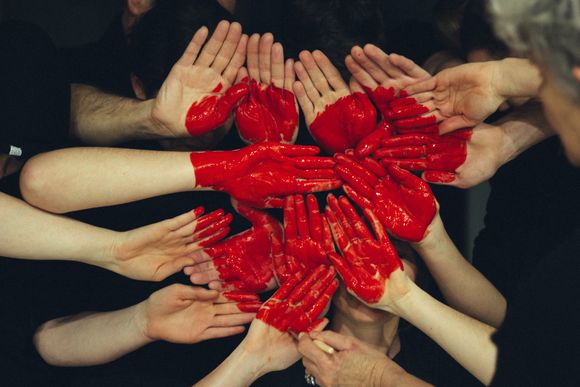Author: Rositsa Tashkova, Master of Molecular Biology and Microbiology
The cardiovascular system is one of the most important in the human body. If we think about what are the most life-threatening conditions and how first aid is provided to a severely injured person, we will necessarily come to this conclusion.
But cardiac arrest is not the only thing that can befall us. It is extremely important that we keep our circulatory system in order to have a good quality of life and good overall health.
In this article, we will talk about 3 of the diseases of the heart, for which there are herbs with a beneficial effect, proven by science: arrhythmia, atherosclerosis, and high blood pressure.:
- Arrhythmia (saffron, ginger, lemon balm, etc.)
- Atherosclerosis (tribulus terrestris, red sage, black cumin, etc.)
- High blood pressure, hypertension (garlic, saffron, green tea, etc.)
Arrhythmia
In general, arrhythmia consists of an abnormal heart rhythm - irregular, too fast, or too slow, and the cause of it can be both severe conditions, such as a vice of the heart or heart attack, and excessive emotional tension or alcohol abuse.
There are a few herbs [ref.1] and supplements that could help us against arrhythmia.
Saffron (Crocus sativus)
Various studies have shown that saffron (saffron crocus) has a positive effect against arrhythmia, and it is considered that this is probably due to its ability to inhibit calcium channels in the cell.
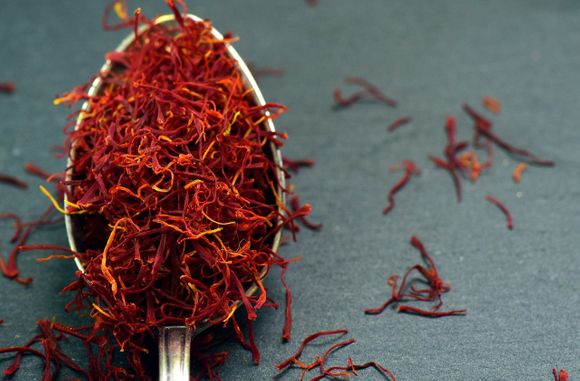
Ginger (Zingiber officinale)
In traditional Chinese medicine, ginger enters the composition of a decoction with cardioprotective properties. In several studies, an effect of ginger against the occurrence of arrhythmia has also been demonstrated. [ref.2]
Lemon balm (Melissa officinalis)
According to some studies, lemon balm has a cardioprotective effect and can serve as an anti-arrhythmia agent.
Other herbs
Antiarrhythmic effect has also been established in the following medicinal plants:
- Garlic (Allium sativum);
- Motherwort (Leonurus cardiaca);
- Magnolia officinalis;
- Burdock (Arctium lappa);
- Common barberry (Berberis vulgaris);
- Bergamot orange (Citrus bergamia);
- Grapes (Vitis sp.)
- Licorice (Glycyrrhiza uralensis);
- Green tea (Camellia sinensis) and others [ref.1].
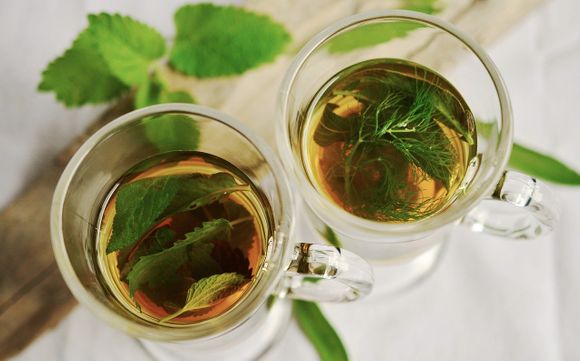
Vitamins, minerals, arrhythmia supplements
- Omega-3 fatty acids (derived mainly from oily fish);
- Vitamin C;
- Magnesium and potassium.
Atherosclerosis
Atherosclerosis is a disease that depends on many factors and is nevertheless the main causative agent of death and severe damage since it affects the blood vessels of the most important organs - the heart and the brain.
Essentially, it is the deposition of plaques inside the blood vessels, which hardens them and creates prerequisites for the formation of thrombi, which clog the vessels, and this can lead to heart attack, stroke, gangrene of limbs, and other severe conditions. Inflammation is a major participant in the process.
The beneficial effect of some herbs against atherosclerosis is based on several different mechanisms:
- Lowering the levels of lipids in the blood;
- Suppression of migration and clustering of monocytes under the layer of cells covering the inside of blood vessels;
- Anti-inflammatory properties;
- Antioxidant properties;
- Suppression of infiltration and proliferation of vascular smooth muscle cells;
- Suppression of plaque formation.
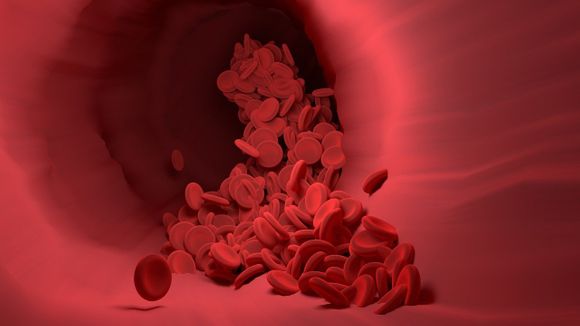
Here we take a look at some of the medicinal plants that possess one or more of these properties. The information is taken from the scientific article of 2019 "Medicinal Herbs Effective Against Atherosclerosis: Classification According to Mechanism of Action". [ref.3]
Danschen or red sage (Salvia miltiorrhiza)
Dried roots of red sage are used in Eastern traditional medicine for cardiovascular disease and atherosclerosis.
The beneficial effect of the herb is due to its ability to lower lipid levels in the blood, to suppress the accumulation of monocytes under the endothelial in blood vessels, its anti-inflammatory properties, to inhibit plaque formation, infiltration and proliferation of vascular smooth muscle cells and its antioxidant effects.
Therefore, it can be said that danschen is the most suitable herb for the prevention and treatment of atherosclerosis.
Basil (Ocimum basilicum)
Aqueous basil extract lowers LDL-cholesterol levels, total cholesterol, and triglycerides, raises the level of HDL-cholesterol, and has antioxidant effects - properties that work against atherosclerosis.
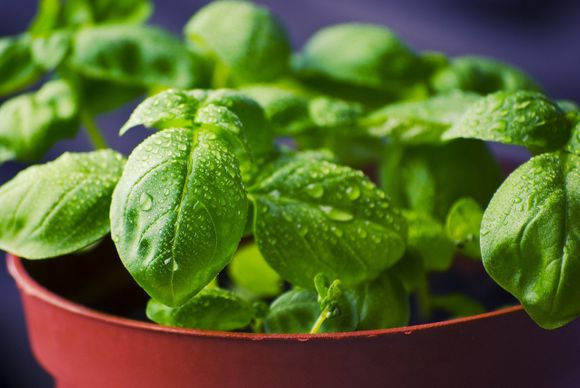
St. John's wort (Hypericum perforatum)
Flavonoid-rich St. John's wort extract lowers serum levels of triglycerides, total cholesterol, and LDL, temporarily increasing the level of HDL. In addition, it also has antioxidant properties.
Tribulus terrestris
Tribulus Terrestris is a known herb in Europe, the extract of which has the property to lower the level of lipids in the blood - lowers LDL, HDL, total cholesterol, and triglycerides.
Black cumin (Nigella sativa)
Black cumin seed oil lowers triglycerides, total cholesterol, and LDL levels and increases HDL levels, which inhibits plaque formation in blood vessels. It also has antioxidant properties.
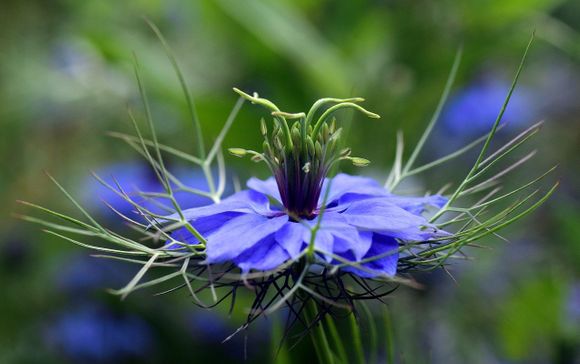
Heal-all (Prunella vulgaris)
The herb is also called common self-heal, heart-of-the-earth, woundwort, carpenter's herb, brownwort, and blue curls. The spirit extract from an ordinary heal-all inhibits the attachment of cells monocytes and has an anti-inflammatory effect. These properties help in the fight against atherosclerosis.
Turmeric (Curcuma longa)
With regard to atherosclerosis, turmeric has similar properties to that of the common heal-all.
High blood pressure (hypertension)
In hypertension, a persistent increase in pressure in blood vessels is observed, which severely burdens the heart and leads to damage in the long term.
An unhealthy lifestyle is a prerequisite for high blood pressure- alcohol, cigarettes, unhealthy eating, lack of physical activity, excessive salt consumption. Hypertension in itself can be a symptom of serious diseases of the cardiovascular system.
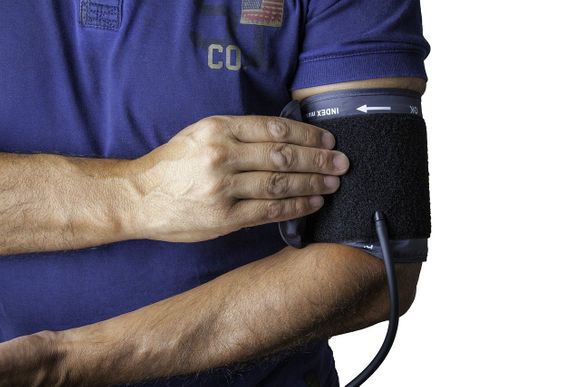
Herbs that come to the rescue in hypertension have several mechanisms of action - they affect the smooth musculature and endothelium of blood vessels, free radicals (reactive oxygen species, ROS), and suppress the renin-angiotensin-aldosterone system (RAAS). [ref.4]
Garlic (Allium sativum)
Garlic is used by folk medicine to lower lipids in the blood and blood pressure. The benefits of this use are also established by science and are believed to be mainly due to alicin and biologically active sulfur compounds in garlic. The only contraindication is the intake of anticoagulants (anti-blood clotting drugs) since in combination with them garlic can intensify bleeding too much.
Green and black tea (Camellia sinensis)
It has been found that the long-term daily use (6 months) of black or green tea lowers blood pressure, with the effect of green tea is greater. This is probably due to flavonoids called catechins, which are contained in tea and lead to the expansion of blood vessels, and therefore - a decrease in pressure in them.
Read more in the article .
Beetroot (Beta vulgaris)
Beet juice has been successfully used to lower blood pressure in several studies in volunteers suffering from hypertension.
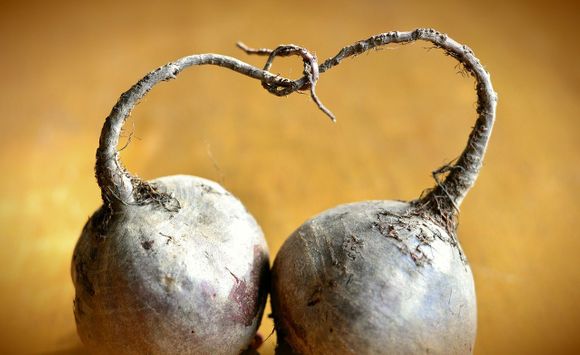
Saffron (Crocus sativus)
Saffron has been used for medicinal purposes, including hypertension, for at least 4,000 years. It contains several substances typical of the plant, as well as flavonoids and anthocyanins - all of which have a vasodilating effect. The positive effect of saffron on high blood pressure has also been confirmed by several studies among volunteers.
Black cumin (Nigella sativa)
Black cumin oil also has a blood pressure-lowering effect, in addition to lowering lipid levels in the blood. The substance thymoquinone has a vasodilating effect.
Roselle (Hibiscus sabdariffa)
Carcade is the name of the tea from the roselle plant. It has a blood pressure-lowering effect, which is more pronounced in people with higher blood pressure. The effect has been confirmed by several studies in animals and humans.
Other medicinal plants with a hypotensive effect are ginseng (Panax sp.) and danschen or red sage (Salvia miltiorrhiza).
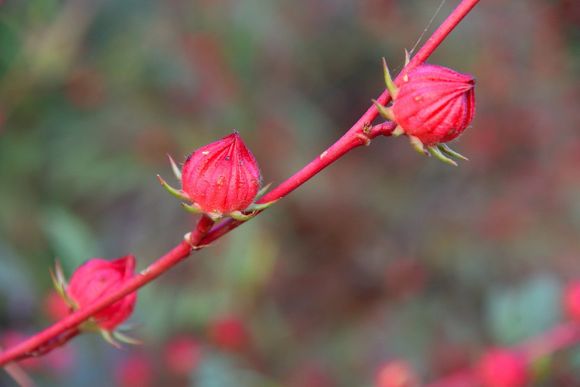
Herbs have the potential to serve as a prophylactic or concomitant treatment. Of course, it should be considered that some of them may interact with the drugs we already take, and therefore consultation with our attending physician is needed to choose the most appropriate medicinal plant for our case and our disease.
In the next article, in continuation, we will also look at other diseases of the cardiovascular system and herbs, proven to have positive effects on our health and help longevity.
